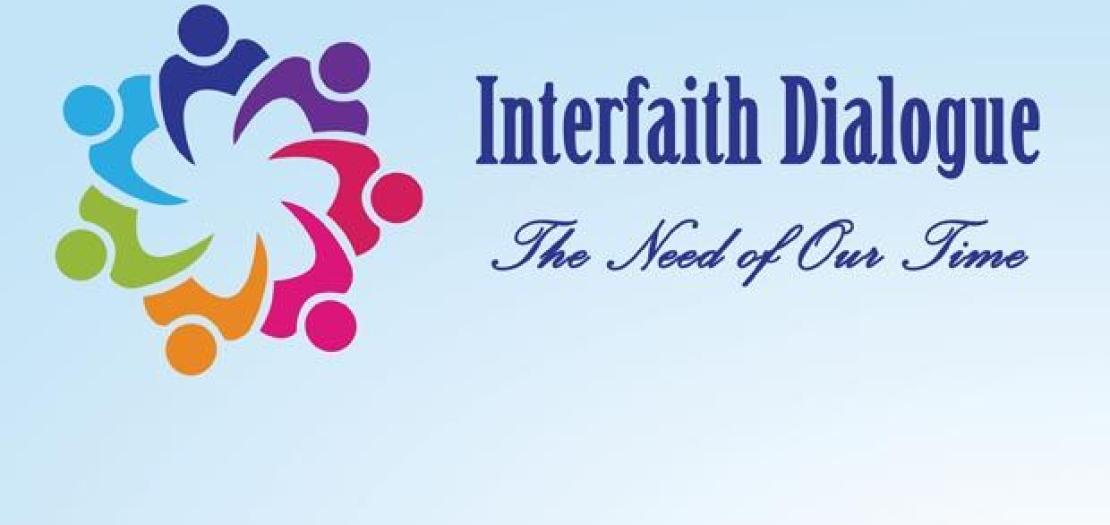Issued by the Catholic Center for Studies and Media - Jordan. Editor-in-chief Fr. Rif'at Bader - موقع أبونا abouna.org
Inter-faith dialogue in the new Pope's era
Since his first public appearance on the papal balcony, Pope Leo XIV (elected on May 8) made it clear that his papacy would be an extension of all his predecessors. He spoke of "building bridges" between the Catholic Church on the one hand and all motley peoples of the world. Everyone understood that the Church's open-minded approach would not be blocked, but rather would be accompanied by opening new horizons.
This was made clear during the Pope's meeting with journalists during his first public audience. The media personnel, numbering about 6,000 people, followed up and covered the events relevant to the death of Pope Francis and the election of Pope Leo. This was followed by a meeting with diplomats accredited to the Holy See, where 190 countries have diplomatic relations, in addition to international organizations. While Pope Leo (69 years old) followed up the pre-planned program for the 2025 Jubilee celebrations of the birth of Lord Jesus Christ—an almost daily celebration that will attract no fewer than 40 million pilgrims to Rome this year--the papal inauguration ceremony and its Mass marking the beginning of the Petrine ministry, was inclusive as it brought together a large number of heads of state and their representatives, representatives of sister churches, and representatives of monotheistic religions.
The following day--as I would like to comment on the important meeting—marked the important meeting with the delegations attending the inauguration ceremony from both sides. The first one was with representatives of sister churches, especially since this year marks the 1,700th anniversary of the Council of Nicaea (located in Turkey) in 325, which unified the Christian faith in a single formula that is still recited in all churches worldwide—and I repeat, "all "Churches with no exception—up to this time. The faith formula is uniform and undivided. Yet, the administrations, or rather the wills, the rites, and sometimes the hearts, were divided and formed several churches, even though Lord Jesus Christ founded one Church, which we call apostolic, universal, and holy.
The second group of the attendees included heads of the various religions during which Pope Leo reiterated the Church's pledge to continue its efforts regarding dialogue, cooperation, convergence, and brotherhood with all believers of various religions. However, he highlighted a special and fair part of his discussion on Islam and Muslims, by recalling two points. The first is what was stated at the 1965 Second Vatican Ecumenical Council, when the Church declared its clear and explicit position on inter-faith dialogue in an important document that remains a basic reference for dialogue, namely Nostra Aetate, or "In Our Time" in which the new Pope affirmed the basic principle of dialogue between the Church and Islam. He stated, “Relations between the Catholic Church and Muslims have been marked by a growing commitment to dialogue and fraternity, fostered by esteem for these our brothers and sisters who “worship God, who is one, living and subsistent, merciful and almighty, the Creator of heaven and earth, who has also spoken to humanity”. (the same document, No. 3) This approach, based on mutual respect and freedom of conscience, constitutes a firm foundation for building bridges between our communities."
The second thing I recall is the “Document on Human Fraternity for World Peace and Living Together”, signed by the late Pope Francis and Grand Imam of Al-Azhar Ahmed Al-Tayeb, in Abu Dhabi on February 4, 2019. That day was marked in the United Nations as the International Day of Human Fraternity which coincides with the World Interfaith Harmony Week that the UN approved at a Jordanian initiative.
Dialogue is not a matter of personal whim, but rather a position and a consistent strategy of the Church in its relationship with believers of various faiths and religious traditions. It is an irreversible option of the Church, enhanced by the previous Pope and those who preceded him in the 20th century with every one of whom visited mosques around the world, as former Pope Benedict visited Al-Hussein Ibn Talal Mosque in our beloved capital, Amman, in 2009 where he delivered a historic speech.
With the election of Pope Leo--a man of extensive experience, whose theology is based on the knowledge of the Algerian-born Saint Augustine, as well as his study of Canon Law in the Church--we see new horizons for intellectual dialogue and practical cooperation in order to find solutions to humanity's dilemmas, most importantly issues of justice and peace.
May the believers, especially Muslims and Christians, join hands once again to build a civilization of love, though there seems to be distant and impossible.







